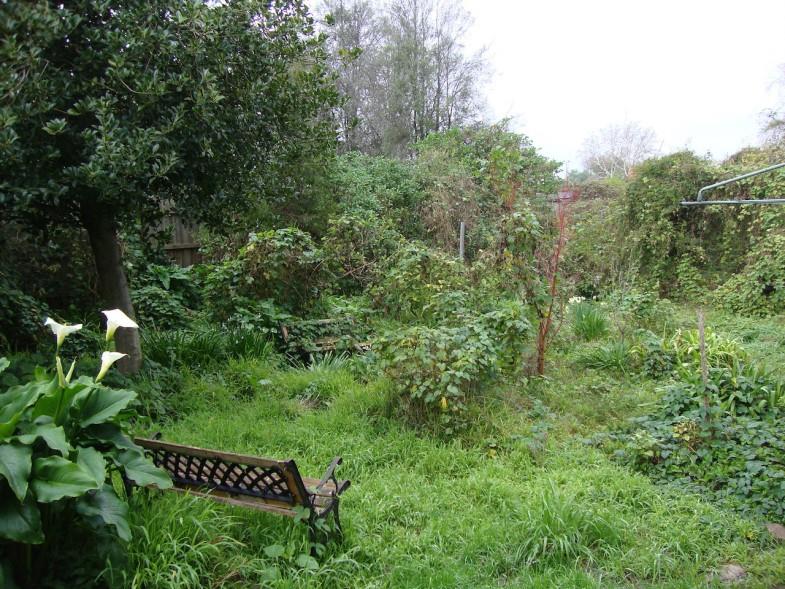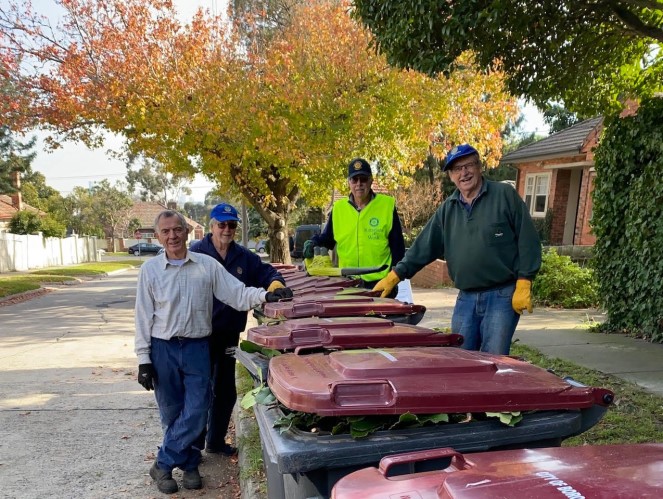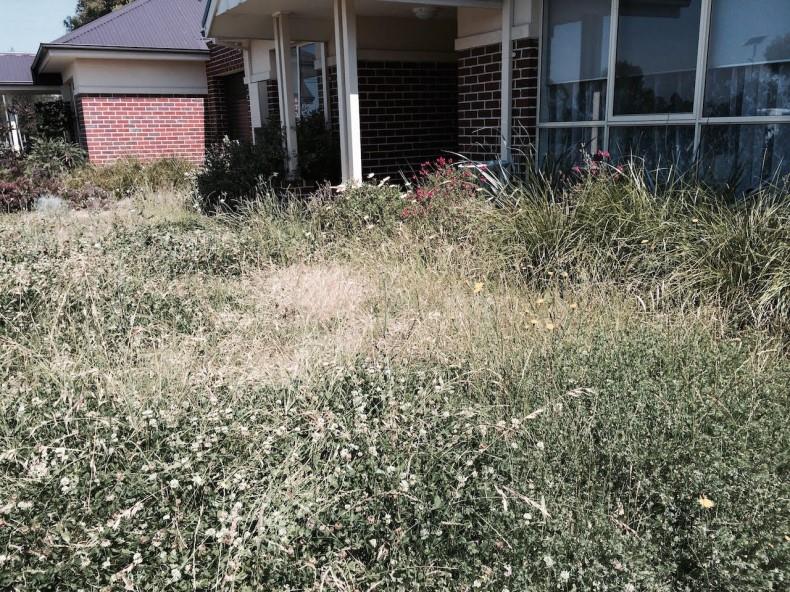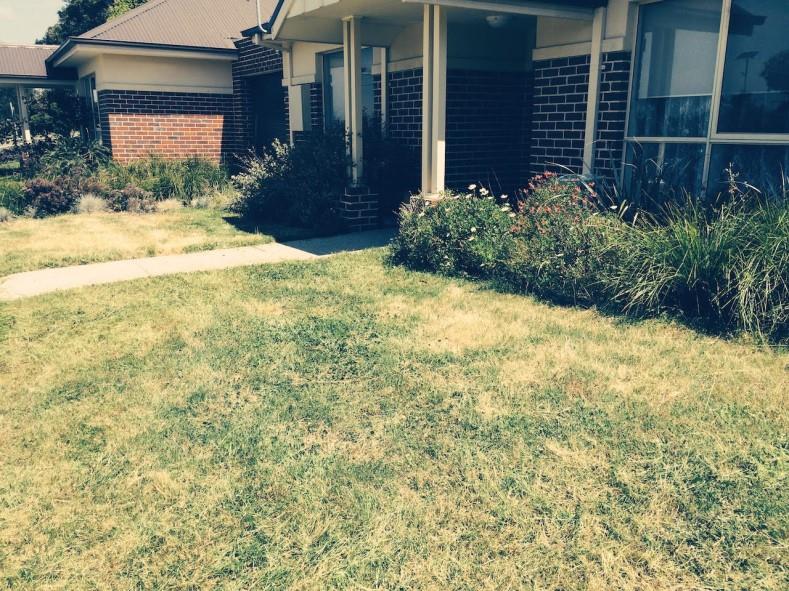 Australian Rotary is entering its centenary, and it’s a time to reflect on where we’ve been and where we’re going. What better place to contemplate and connect with what’s important than in a garden; someone else’s garden in fact.
Australian Rotary is entering its centenary, and it’s a time to reflect on where we’ve been and where we’re going. What better place to contemplate and connect with what’s important than in a garden; someone else’s garden in fact.
An elderly gentleman, we’ll call him Bill for the story, could only access his house through a wonky side door. A tangled mass of vines covered the rear of the building practically inveigling themselves into the very fabric of the walls. Forests of blackberry bushes veiled trees they had strangled to death. Shrubs were worn thin from neglect, and a self-sown scrub had usurped the once manicured lawns of his suburban front and back yards; a reflection of Bill having giving up on domestic life since his wife had passed some years before. The local RSL club and cafés were his refuges from the decay and wreckage.
Neighbours had complained about the mess to Boroondara council. A social worker came to inspect. She knew of Rotary Club of North Balwyn’s (RCNB) gardening program, and asked them to assess the situation. One look told them that this was going to take a lot of people-power.
When a property is referred to RCNB, an assessor meets the resident, inspects the property, and completes an information sheet to guide the day’s work supervisor. Residents discuss their ideas about what they want for their garden, which is reflected in the service provided.
“None of us are horticulturalists and our aim is not to manicure the gardens, but to restore them to reasonable liveability and appearance,” said Rotary Garden’s Project Coordinator, Neil Marshall.
Generally, the gardening team only work periodically at the homes of elderly or disabled clients to do a clear up or maintenance, but Bill’s house was going to need several visits to make it habitable.
“The gardening program began 10 years ago when our club was looking for community service opportunities. After approaching the municipal council, specifically the aged care unit, as well as churches and welfare agencies, we found that gardening would really make a difference to the quality of life of elderly and disabled residents.
 “We asked them to refer clients who met three criteria; they had to be residents of Boroondara, either they or their families were physically unable to maintain their gardens, and there were inadequate resources to pay a commercial gardener. We found that some of the properties we care for are rather valuable, but the residents are short of cash,” said Neil.
“We asked them to refer clients who met three criteria; they had to be residents of Boroondara, either they or their families were physically unable to maintain their gardens, and there were inadequate resources to pay a commercial gardener. We found that some of the properties we care for are rather valuable, but the residents are short of cash,” said Neil.
RCNB also saw this as an opportunity to involve secondary school students in a community service activity, which is required by some schools that run programs such as the youth development program, Duke of Edinburgh’s Award. They work under the supervision of Rotarians and they’re not allowed to use power tools, or climb on roofs or up ladders. There has not been one serious accident in all the time the project has run.
 In the past 12 months the main participating schools were MLC, Camberwell Grammar School and Xavier College. The students really enjoyed discussions with the older residents, many of whom are lonely and appreciated their time with the students. They boys were especially fond of the afternoon teas, which they generally demolished.
In the past 12 months the main participating schools were MLC, Camberwell Grammar School and Xavier College. The students really enjoyed discussions with the older residents, many of whom are lonely and appreciated their time with the students. They boys were especially fond of the afternoon teas, which they generally demolished.
A real sense of pride comes from restoring a garden, and you can almost feel the plants and soil breathe again as they emerge from tangled entrapment. One property was owned by a widowed pensioner who had been a state school principal. The backyard was enormous but completely overgrown. Hints of its former grandeur poked through; a gazebo, an old orchid garden, rows of rose bushes engulfed by weeds, and, much to the surprise of one Camberwell Grammar boy, a hidden fish pond that he slashed around in joyfully.
The gardening team encounters a diverse range of scenarios. Some residents are hoarders and so they’re helped sensitively in the clean-up, and the hard rubbish collections are put to the test. Another key part of the program is the supply and management of green waste bins by the council depot. They’re delivered, emptied and returned as required. The service is wonderfully efficient.
The purpose of the project is purely as a community service but it has served to raise the profile of the club significantly with Boroondara residents, schools, council and supplier-partners. The service receives many calls and letters from satisfied residents and although it is a totally free service, they occasionally receive small donations that help buy fuel, gloves and replacement hand-tools.
As we gradually emerge from COVID-9 restrictions, a database of almost 250 properties are waiting for assistance so a priority system has been established to help those in more urgent need.
Back to our friend Bill, once the front of the property was cleared up, much to the delight of the neighbours, his house became a home again and the gardening team drew a lot of satisfaction from knowing that he was enjoying sitting on a bench under a large oak tree to read his morning paper.
Any Rotary club can create a similar program in their patch. Neil Marshall is happy to talk you through the process. Don’t let the grass grow under your feet on this one; contact Neil neiltric@yahoo.com.au.



